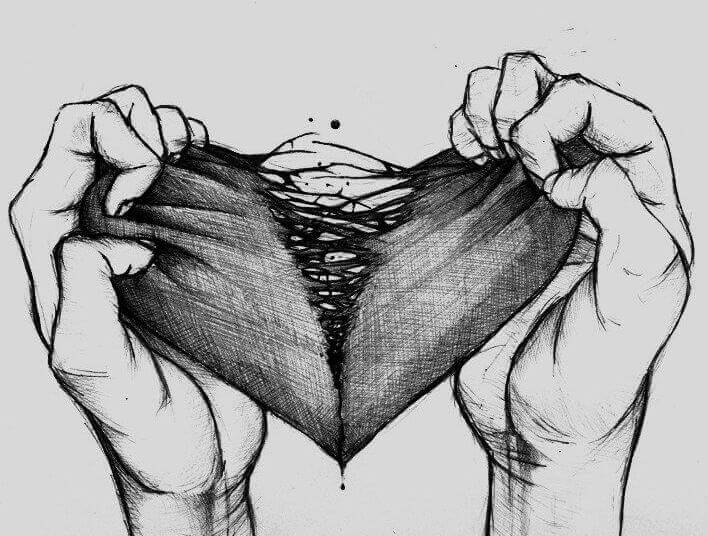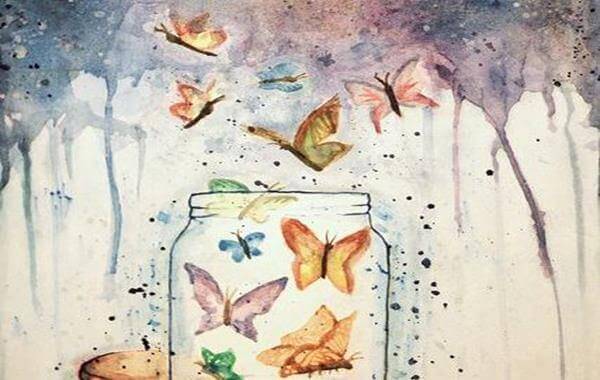The Danger of High Expectations


Written and verified by psychologist Valeria Sabater
We spend a lot of time waiting for things from other people. We expect our needs to be met and for those we care about to treat us the same way, with reciprocity. But things don’t go our way sometimes, leaving our high expectations crushed.
However, you shouldn’t let this get you down. We all need certain things from people in order to feel some sense of security. The same way a child knows they’re loved by their parents, we as adults expect our partners to always treat us the same way we treat them.
Despite the fact that a healthy, balanced relationship should work that way, this often results in disillusionment: expecting too much when, in reality, we don’t get anything in return.
Let’s reflect on that a little.
When your high expectations are let down
Some people are under the impression that happiness is giving, not receiving. Maybe it’s the way we were raised or the fact that this exceedingly noble value neglects an essential aspect of our survival: self-esteem.

You’re entitled to receive too
We need to let go of a lot of these concepts that go against our emotional balance. Spreading joy is a noble act that enriches us; you could even think of it as an obligation. Giving is good, but receiving is an obligation.
You should read: The One Who Truly Loves You Will Make You Happy
- We’re not talking about material goods or even favors. When we do something for someone, it’s not mandatory to respond to a spontaneous gift that came from the heart with an even bigger gift.
- Something we all have the right, and even the obligation, to receive respect. If you give love, you shouldn’t get back indifference and selfishness in return.
- In romantic relationships, “giving and receiving” is both a right and an obligation. It’s a type of energy that’s created between two people that nourishes growth and is fueled by respect and reciprocity.
We expect too much because we would be willing to give a lot more
Maybe someone has said something to you along the lines of “You expect too much from people” or “You’re too sensitive and everything upsets you”.
- These words, above all, reflect a lack of empathy towards a heart that gives so much to others and goes without recognition.
- Maybe you tell yourself things like “I have to learn to love less”. In reality, what you should be telling yourself is “I have to learn to love myself more”.
Loving someone means making room in your heart for the other person by putting them at the center of your universe and building your world around them.

However, we need to avoid these extremes in which we neglect our own needs. You can have high expectations for another person, but don’t forget to expect the same things of yourself as well.
- Don’t forget to take care of yourself each and every day. Don’t prioritize others to the extent that you neglect your own needs.
- Offer your affection, concern, and care but also expect those things in return.
Also discover: 9 Activities to Improve Your Relationship
How to react when you realize you’ve never received anything in return
- Your heart will let you know when you’ve reached your limit. If you wake up with more dark clouds than hope and you spend all your time frustrated and wanting to cry, it’s time to act.
- When you don’t receive anything in return, you feel empty and may even feel as though you’re not worthy of receiving affection, care, or attention. Don’t ever let the emotional emptiness of others make you believe that you don’t deserve to be loved.
- The love that will never leave you is the love you give yourself. It will give you the strength to follow your own path towards personal balance and inner peace.

One idea that psychologists promote is that it’s best not to expect anything from others and instead have high expectations for yourself. Now, this idea has many shades of meaning.
- We can expect certain things from the people that form our inner circle. For example, we need to have the security of knowing we’re loved because no one can live without this certainty.
What we deserve above all is respect from ourselves and from others. Don’t stop fighting for it. Love is reciprocity, support, and sincerity. If you don’t find these qualities in your relationship, it’s a sign that it’s neither genuine nor healthy.
All cited sources were thoroughly reviewed by our team to ensure their quality, reliability, currency, and validity. The bibliography of this article was considered reliable and of academic or scientific accuracy.
- Argyle, M. (1987). La psicología de la felicidad. Madrid: Alianza.
- Avia, M., y Vázquez, C. (1998). Optimismo inteligente. Madrid: Alianza.
- Russell, B. (1991). La conquista de la felicidad. Madrid: Espasa-Calpe.
- Savater, F. (1994). El contenido de la felicidad. Madrid: Santillana.
- Klein, S. (2004). La fórmula de la felicidad. Barcelona: Urano.
This text is provided for informational purposes only and does not replace consultation with a professional. If in doubt, consult your specialist.








